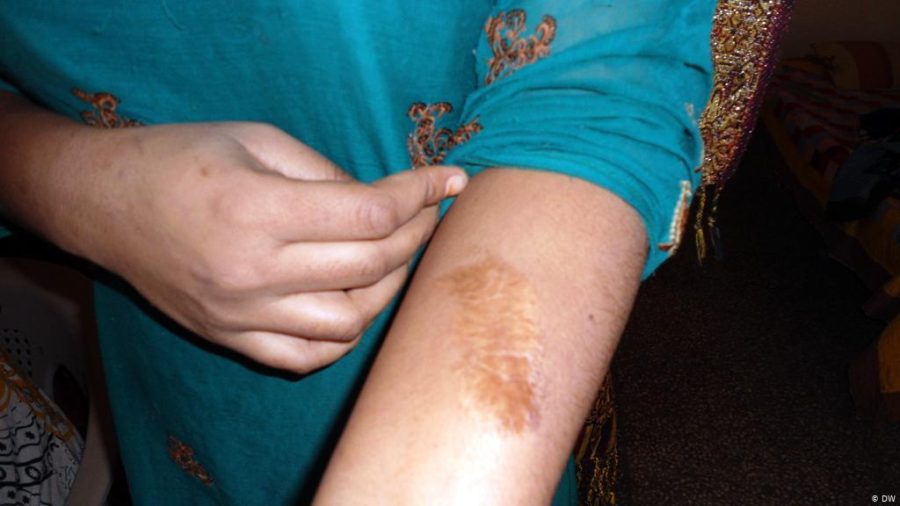Babar Awan, the Prime Minister’s Parliamentary Affairs Adviser, has written a letter to National Speaker Asad Qaiser, requesting that the Council of Islamic Ideology (CII) review the Domestic Violence (Prevention and Protection) Bill, 2021.
The CII is a constitutional body that advises the legislature on whether or not a law is repugnant to the injunctions of Islam.
The bill, which was approved by the National Assembly (NA) in April this year, was referred back to the Lower House of Parliament after the Senate recommended changes to the proposed legislation, according to Awan’s letter dated July 5, 2021.
The letter further states that concerns have been raised “regarding various definitions and other contents of the bill.”
It adds: “Most importantly it is being highlighted that the bill contravenes the Islamic [injunctions] and way of life as enshrined in responsibility of the state in Article 31 of the Constitution of Islamic Republic of Pakistan”.
Citing Article 230 (1) (b) of the Constitution, the letter says it “empowers the Islamic Council (CII) to advise a House, a Provincial Assembly, a President or a Governor on any question referred to it as to whether proposed law is or is not repugnant to the [injunctions] of Islam”.
Furthermore, under Article 230 (1) (a), the committee may offer suggestions to parliament on how to encourage Muslims in Pakistan to conduct their lives in accordance with Islamic values, both individually and collectively, according to Awan’s letter.
He noted that the bill should be submitted to the CII on these reasons.
Human Rights Minister Shireen Mazari introduced the Domestic Violence (Prevention and Protection) Bill, 2021, in the NA on April 19, 2021, and it was approved by the Lower House the same day.
According to Mazari, the act established a legal and institutional framework for the territorial authority of Islamabad to guarantee that victims of domestic abuse received legal protection and redress, and that perpetrators of the crime were punished.
The bill was subsequently sent to the Senate, where the opposition defeated the government by one vote, blocking the measure’s immediate approval and demanding that it be sent to the appropriate standing committee for further consideration.
From the bench: The KP domestic violence law is a watered-down version of earlier versions.
PPP’s Yousuf Raza Gilani, the Senate’s leader of opposition, had claimed at the time that the bill, although being significant legislation that had taken months to pass the NA, ought to be submitted to the standing committee.
The Senate chairman ordered the then-yet-to-be-formed committee to submit its report to the House on the issue two days after its creation, after the opposition had defeated the government by 35-34.
Senate committee’s report
On June 18, the Senate Committee on Human Rights submitted its report, stating that the bill aimed to “establish an effective system for the protection, relief, and rehabilitation of women, children, elders, and other vulnerable persons in the territorial jurisdiction of Islamabad Capital Territory against domestic violence.”
According to the article, the legislation will allow courts to issue interim orders, protection custody and residency orders, and monetary compensation to victims at the cost of respondents, as well as create a protection committee to help aggrieved people and process their court petitions.
The report, on the other hand, recommended a number of changes to the draft, after which the measure was re-referred to the NA.
Last month, the Senate opposition expressed concerns about the measure, as well as other important human rights legislation, vanishing into a black hole and reappearing as government bills.
Senator Sherry Rehman, the PPP’s parliamentary leader, had raised the matter in the house, saying, “A wrong practise is going on for quite some time, which is a disincentive for members of the Senate who work hard on bills with civil society and their colleagues.”
Thousands of progressive legislation have simply disappeared from legislative agendas under the Pakistan Tehreek-i-Insaf (PTI) administration, rather than being scrutinised and reviewed by parliamentary committees.
“It is shocking how my Bill, ‘Domestic Violence (Prevention and Protection) Bill, 2020’, has been silently omitted from the agenda,” Rehman had added.
The CII’s previous decision on domestic violence
The CII presented a law in 2016 that would let a husband to “lightly” beat his wife “if necessary” and restrict gender mixing in schools, hospitals, and workplaces.
The proposed law was deemed illegal by Farzana Bari, a human rights activist and professor at Quaid-i-Azam University.
“Allowing a husband to beat his wife, in any way, is against Pakistan’s Constitution and the international laws and treaties that Pakistan has signed and is bound by. This Council is a burden on the Pakistani taxpayer and bringing a bad name to Muslims throughout the world,” he had said, warning that the bill “will take Pakistan further into ignorance.”








